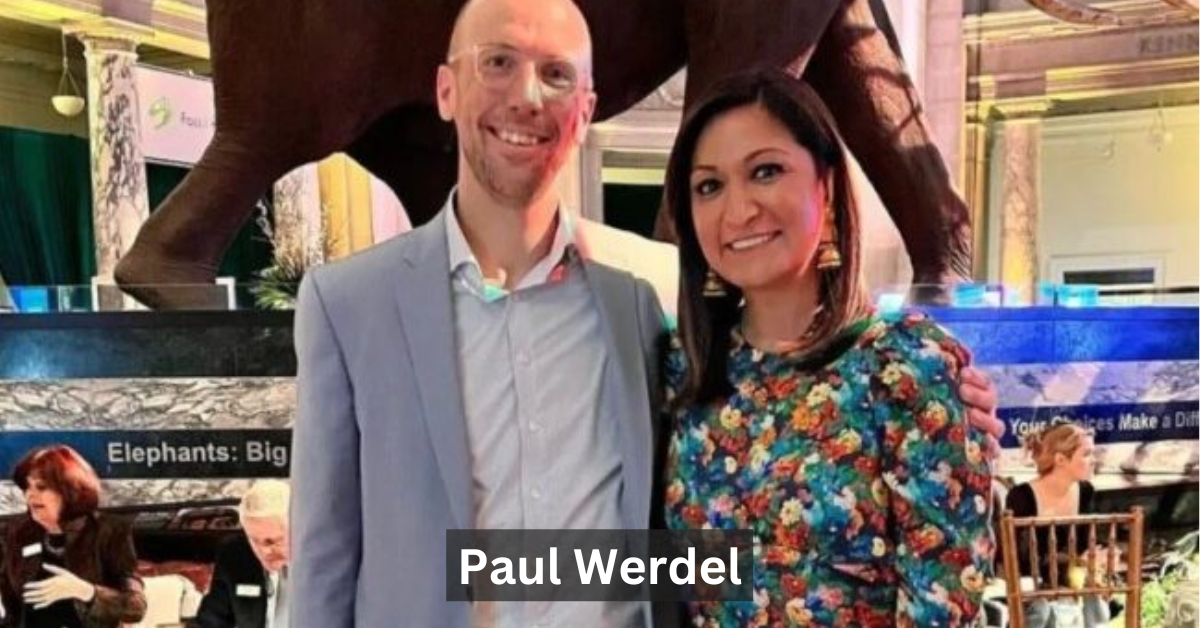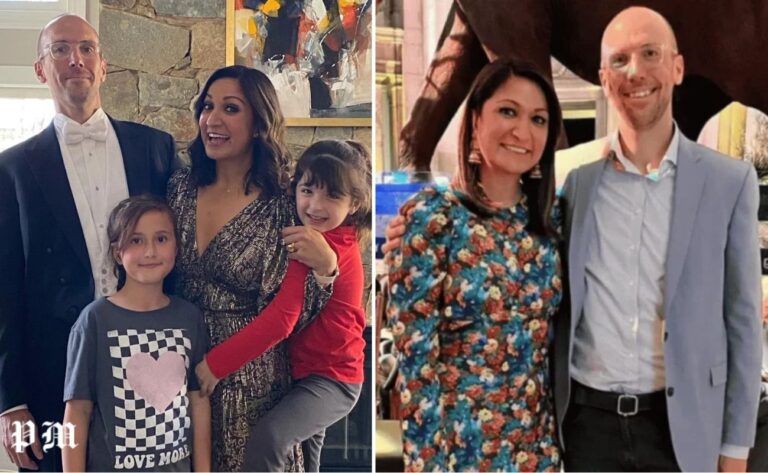Paul Werdel may not be a household name, but within the tight-knit circles of American journalism and media strategy, he’s a respected figure known for his thoughtful editorial direction and digital innovation. With an academic background in journalism and a career that includes prominent roles at The New York Times and PBS NewsHour, Werdel exemplifies the modern media professional who bridges traditional reporting and digital platforms.
This article explores his life in detail—from his early beginnings to his personal values, career milestones, and the quiet but profound impact he has had on contemporary newsrooms. Whether you’re a journalism student, media analyst, or just curious about the man behind the scenes of major news organizations, this guide offers a deep dive into the life and work of Paul Werdel.
Quick Bio Table: Paul Werdel
| Attribute | Details |
|---|---|
| Full Name | Paul Werdel |
| Profession | Journalist, Digital Media Strategist |
| Known For | Editorial work with The New York Times, PBS |
| Birthplace | United States |
| Nationality | American |
| Education | University of Maryland, College Park |
| Degree | Journalism |
| Notable Roles | Editor at NYT, Producer at PBS NewsHour |
| Marital Status | Married |
| Spouse | Amna Nawaz (PBS NewsHour anchor) |
| Children | Two (as per public reports) |
| Public Image | Private, respected media professional |
| Social Media Presence | Low profile |
Family Roots and Background
Paul Werdel was born in the United States, though specific details about his birthplace, parents, and siblings are not publicly disclosed—an indication of his preference for privacy. What’s known is that he was raised in an environment that valued education, civic awareness, and critical thinking. These values clearly influenced his later decision to enter the field of journalism.
His heritage and family culture remain largely out of the public eye, reinforcing his consistent separation between professional achievement and private life.
Childhood & Upbringing Insights
Growing up in America during the digital transition in media, Werdel was part of a generation that witnessed the shift from print to digital journalism. Though limited information exists about his childhood, one can infer from his later career trajectory that he was intellectually curious and deeply engaged with current events, media, and writing.
His early influences are not widely documented, but his eventual pursuit of a journalism degree from a major university suggests strong foundational interest and skill in writing, critical thinking, and analysis—hallmarks of any successful journalist.
Education and Academic Journey
Paul Werdel earned his degree in journalism from the University of Maryland, College Park, one of the most respected journalism programs in the United States. The Philip Merrill College of Journalism at UMD is known for its rigorous training in multimedia reporting, ethics, and investigative journalism.
At Maryland, Werdel would have received hands-on training in both traditional reporting and emerging digital techniques. The curriculum there focuses on storytelling across platforms—television, web, audio, and print—giving students a versatile toolkit. This likely shaped his later focus on digital journalism and editorial innovation.
While specific accolades or extracurriculars are not documented, his later career achievements indicate that he excelled during his academic years, possibly contributing to student publications or internships with local media outlets.
Rise to Public Attention or Notability
Werdel’s career began during a pivotal time in journalism when media outlets were adapting to the rise of digital platforms and audience engagement via the internet. His first notable roles involved work in the public broadcasting space, where he developed a reputation for strategic editorial thinking.
He became more widely recognized during his tenure at The New York Times, where he worked as a senior editor specializing in digital strategy and platform expansion. In this role, he collaborated with editorial and product teams to improve how journalism reached readers—especially on mobile and social platforms.
He may not appear frequently in the public eye or in media headlines, but his contributions have had lasting internal impact in media organizations focused on credibility, clarity, and digital adaptation.
Relationship with Amna Nawaz
Paul Werdel is married to Amna Nawaz, a prominent journalist and anchor at PBS NewsHour. Amna is known for her compelling storytelling, political reporting, and coverage of national and international events. She became co-anchor of PBS NewsHour in 2023, breaking barriers as a South Asian Muslim woman in American media.
Their relationship is a compelling example of two media professionals managing high-profile careers while maintaining a private and grounded family life. Together, they have two daughters.
While the couple maintains a low public profile, they are admired within journalism circles for their professional integrity and mutual respect. They have occasionally appeared together at media events, though they largely keep their relationship out of the spotlight.
Personal Life, Values, and Interests
Unlike many in the media world, Werdel chooses to maintain a discreet personal life. He is not publicly known for extravagant hobbies or vocal political stances. This measured approach may reflect journalistic values—objectivity, balance, and thoughtfulness.
He is often described by colleagues as principled, introspective, and strategic. His interests likely include digital media, platform engagement, and public service journalism. He is also known to value family deeply, prioritizing time with his children and spouse amid demanding work schedules.

Public Image and Social Media Presence
Paul Werdel has intentionally maintained a low public profile. He does not actively use platforms like Twitter or Instagram in a personal capacity, which is increasingly rare for media professionals. When he does appear online or in public interviews, it is usually through professional affiliations rather than personal commentary.
This approach to public presence underscores his focus on the work itself rather than self-promotion—a trait that is both old-school and deeply admired among veteran journalists.
Werdel’s public image is that of a behind-the-scenes thinker: someone who helps shape the news you read but does not seek the spotlight.
Career Milestones or Achievements
Paul Werdel’s most notable contributions come from his time at The New York Times, where he worked as part of the editorial strategy team. His work helped refine how the Times presented its journalism on mobile platforms—an essential evolution during the rise of smartphones and digital news apps.
He also held editorial positions at PBS NewsHour, contributing to digital strategy and possibly aiding the broadcast’s expansion into new platforms. His dual roles in both public and private media institutions give him a unique edge—balancing journalistic rigor with digital scalability.
Key Milestones:
-
Editor and digital strategist at The New York Times
-
Senior producer/editor roles at PBS
-
Led efforts to make legacy journalism more digitally accessible
-
Partnered with newsroom leaders to craft content delivery systems
Though he has not published books or given TED talks, his behind-the-scenes contributions have been influential in shaping newsroom strategies in the digital age.
Net Worth and Financial Details
Because Paul Werdel is not a public celebrity, his exact net worth is not publicly disclosed. However, estimations based on similar roles at The New York Times and PBS place his net worth between $500,000 and $1.5 million, primarily from journalism salaries, speaking engagements, and consulting work.
As the spouse of Amna Nawaz, their household likely benefits from dual high-level media salaries. Despite this, there are no reports of lavish spending or publicized wealth—consistent with their low-key public personas.

Legacy, Public Relevance & Influence
While Paul Werdel may not be widely recognized outside of journalism and digital media strategy circles, his professional legacy is significant. He represents a generation of journalists who helped transition legacy institutions into the digital era without sacrificing editorial integrity.
His work at The New York Times, in particular, contributed to the paper’s evolution into a multimedia powerhouse. At PBS, his role likely influenced how the network connects with younger, mobile-first audiences.
He has also helped set an example of how media professionals can maintain ethical boundaries between personal and professional lives—a rare and valuable trait in an era of digital transparency.
Privacy, Challenges & Public Myths
Given Werdel’s quiet nature, there are few, if any, public controversies associated with his name. He has never been linked to any professional scandal or public misinformation.
His biggest challenge, like many in modern journalism, likely involved navigating the turbulent shifts in media business models, audience trust, and digital disruption. Yet, his continued work with prestigious institutions indicates a career of integrity, resilience, and adaptability.
Any assumptions or myths about his career are usually based on confusion or his connection to a more public-facing spouse. However, nothing suggests that Werdel seeks to ride anyone’s coattails—he is independently accomplished and professionally distinct.
Latest Updates & Future Outlook
As of 2024, there is no official announcement of a new position or public endeavor from Paul Werdel. He continues to be professionally active, possibly in editorial strategy, consulting, or digital journalism roles.
Given his background, it’s plausible that he may take on a senior leadership role at a media institution or join a think tank focused on the future of journalism and democracy. He may also choose to enter academia or mentorship, helping train the next generation of journalists.
Either way, Werdel’s quiet leadership will continue to shape how trustworthy journalism is created, distributed, and consumed.
Conclusion
Paul Werdel stands as a model for today’s principled journalist and media strategist. Without the flashiness of social media fame or self-promotion, he has earned his place in the evolution of American journalism—especially in the digital age. His work behind the scenes at institutions like The New York Times and PBS has helped shape how audiences experience credible, accessible news today.
Whether as a supportive partner to Amna Nawaz or a leader in digital media transformation, Paul Werdel’s life reminds us that impact does not require the spotlight—only integrity and expertise.
FAQs About Paul Werdel
1. Who is Paul Werdel?
Paul Werdel is an American journalist and digital media strategist known for his editorial work at The New York Times and PBS NewsHour.
2. Is Paul Werdel married to Amna Nawaz?
Yes, he is married to Amna Nawaz, a prominent PBS NewsHour anchor and journalist.
3. What is Paul Werdel’s background in journalism?
He studied journalism at the University of Maryland and worked in digital strategy at The New York Times and PBS.
4. Does Paul Werdel have children?
Yes, he and Amna Nawaz have two daughters, though their names and details are kept private.
5. What is Paul Werdel’s role in digital journalism?
He played a significant role in transitioning traditional newsrooms into modern digital platforms, focusing on accessibility and reader engagement.


